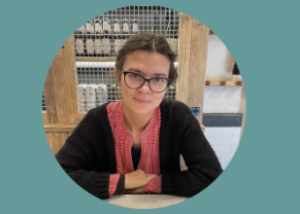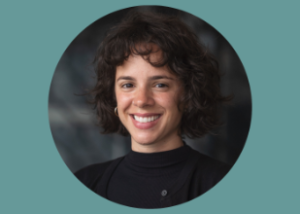We are very pleased to announce three successful applications to the Scottish Graduate School for Arts and Humanities Earth Scholarships from colleagues at the University of Edinburgh. Two scholars will be based in the Edinburgh School of Architecture and Landscape Architecture, and one at the Edinburgh Futures Institute.

Aadita Chaudhury is a final-year PhD candidate in the Graduate Program in Science and Technology Studies (STS) at York University, Canada. With a background spanning environmental studies, STS, political ecology, cultural studies and interdisciplinary arts practice, Aadita explores how scientific inquiry and the arts can configure nature as a site for embodied experiential knowledges, and future world-making. She has been part of research projects and networks at the intersection of arts, ecology, technology and transnational social and environmental justice in Canada, the United States, the United Kingdom, Italy and India.
Considering the embodiment of time as method in environmental humanities
During her EARTH Scholarship exchange, Aadita will investigate how the embodied individual and collective experiences of time and changing seasons help environmental researchers better attune to local specificities of the climate crisis. Based at the Edinburgh College of Art of the University of Edinburgh, Aadita will use multispecies ethnographic methods to explore of local ecologies, literary and performing arts, myths and stories, along with body-centred practices to contextualize Scottish experiences of nature in Ravelston Woods, Arthur’s Seat and Royal Botanic Garden Edinburgh. Through direct immersion into these cultural and ecological landscapes, she will explore methodologies that show how situating the body as part of ecosystems can transform environmental imaginaries, ethics, and praxis.
 Deborah Schrijvers, originally from the Netherlands, is an Ad Astra doctoral student in the School of English, Drama and Film at University College Dublin. For her PhD project, she researches extinction narratives with an emphasis on gender, race and decolonisation through analyses of contemporary and transnational video installations and experimental film. She has just started the third year of her PhD under the supervision of Dr Hannah Boast. Additionally, Deborah is a Research Assistant for the University College of Dublin’s Environmental Humanities strand.
Deborah Schrijvers, originally from the Netherlands, is an Ad Astra doctoral student in the School of English, Drama and Film at University College Dublin. For her PhD project, she researches extinction narratives with an emphasis on gender, race and decolonisation through analyses of contemporary and transnational video installations and experimental film. She has just started the third year of her PhD under the supervision of Dr Hannah Boast. Additionally, Deborah is a Research Assistant for the University College of Dublin’s Environmental Humanities strand.
Viewing with the Nonhuman: Time, texture and extinction in Carlos Casas’ Cemetery (2019)
During her EARTH Scholarship exchange, Deborah will be based at the University of Edinburgh under supervision of Dr Michelle Bastian. Animal extinction is often registered in popular media as a product of the homogeneous anthropos in ‘Anthropocene’ and remedied through breeding schemes or scientific promises such as de-extinction projects. Deborah’s project intervenes in these conversations by highlighting the sociopolitical dimensions of extinction, specifically the roles of gender and race. Deborah aims to write a chapter of her thesis on the role of time in contemporary extinction narratives. The chapter will focus on the experimental film Cemetery (2019) by Spanish filmmaker Carlos Casas. Deborah’s theoretical framework consists of an interdisciplinary approach to art, informed by extinction studies, animal studies, film studies, critical theory, critical race theory and queer theory. She hopes that the exchange opportunity will enable future collaborations between University College Dublin and the University of Edinburgh, and their city’s natural history museums.
 Marianna Fernandes Cavadini is a first-year doctoral researcher based at the Geneva Graduate Institute of International and Development Studies, Switzerland. She is also affiliated with the Centre for International Development Studies (CIES). Prior to her PhD, she worked for civil society organizations on topics such as extractive industries, energy transition, digital economy, and disasters.
Marianna Fernandes Cavadini is a first-year doctoral researcher based at the Geneva Graduate Institute of International and Development Studies, Switzerland. She is also affiliated with the Centre for International Development Studies (CIES). Prior to her PhD, she worked for civil society organizations on topics such as extractive industries, energy transition, digital economy, and disasters.
The use of digital technologies in mining to mitigate climate change
During her EARTH Scholarship exchange, Marianna will be based at the Edinburgh Futures Institute (EFI), University of Edinburgh. Her project will analyse the cultural and environmental implications of using digital technologies in mining sites to mitigate climate change. Technologies translating physical environments into digital data are increasingly used to reduce the mining industry’s carbon footprint. The project will reflect on the challenges and opportunities presented by data-driven technologies to promote sustainability in the mining sector.



